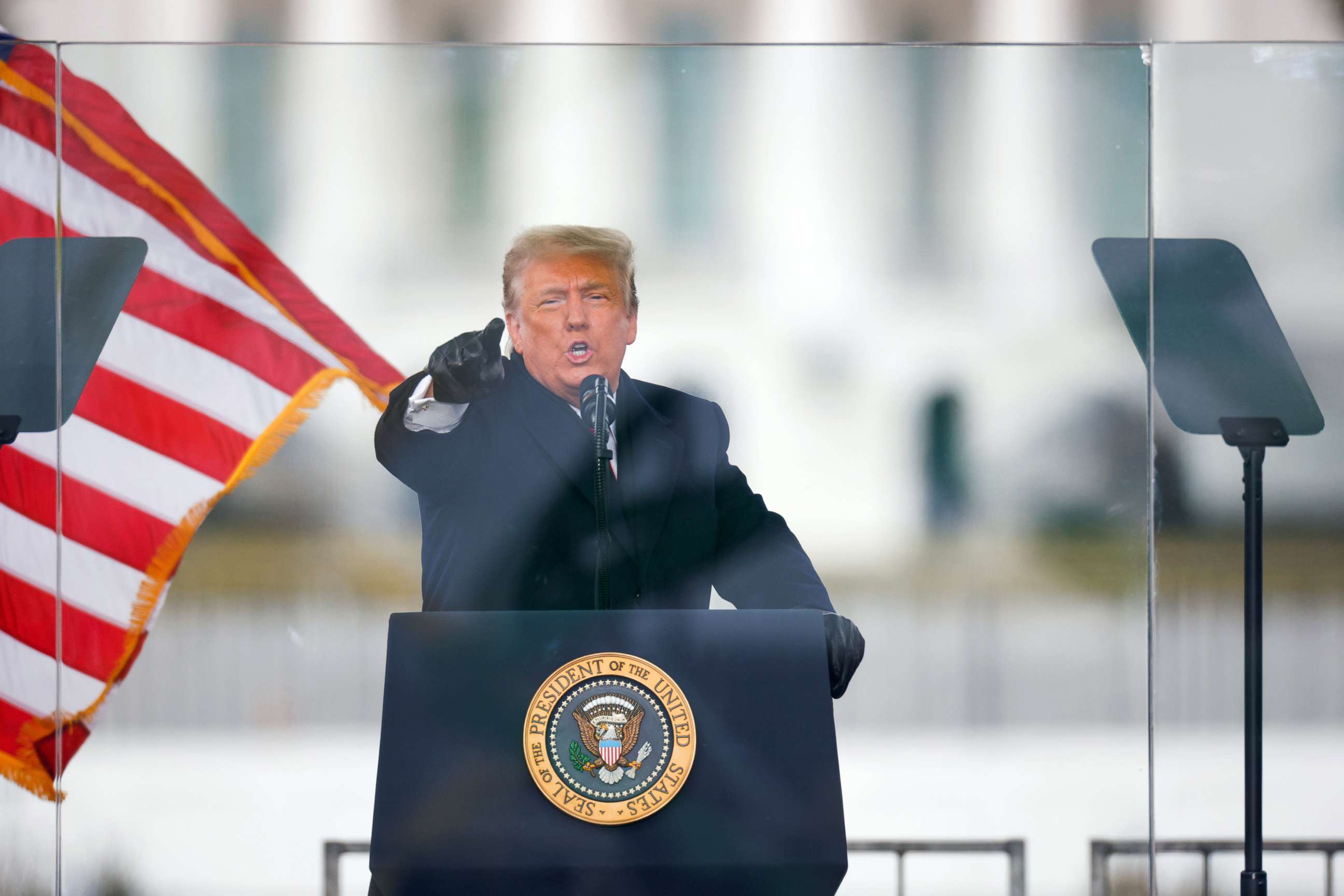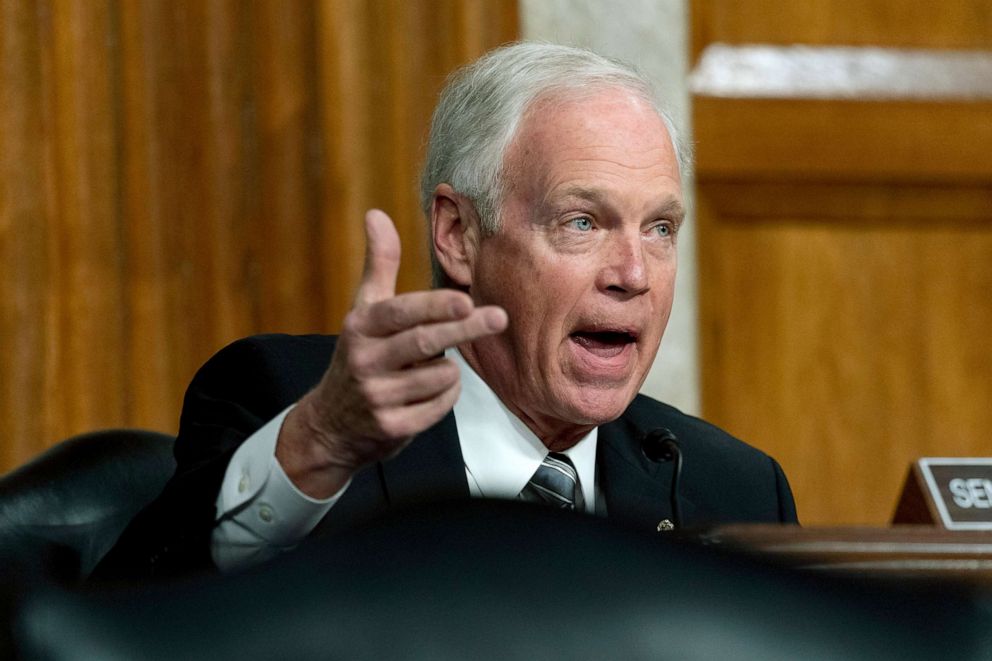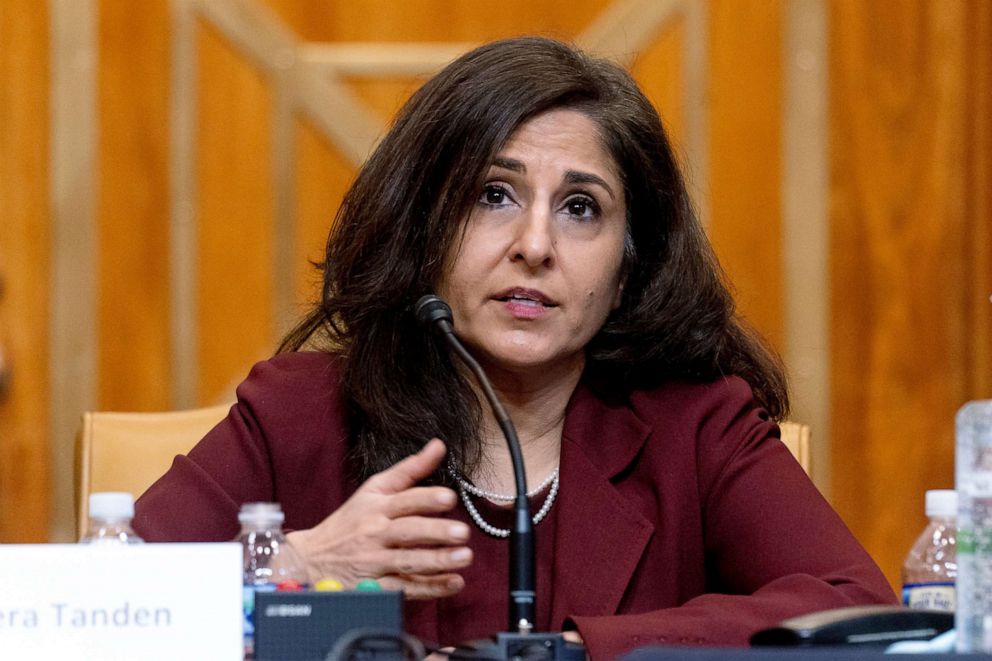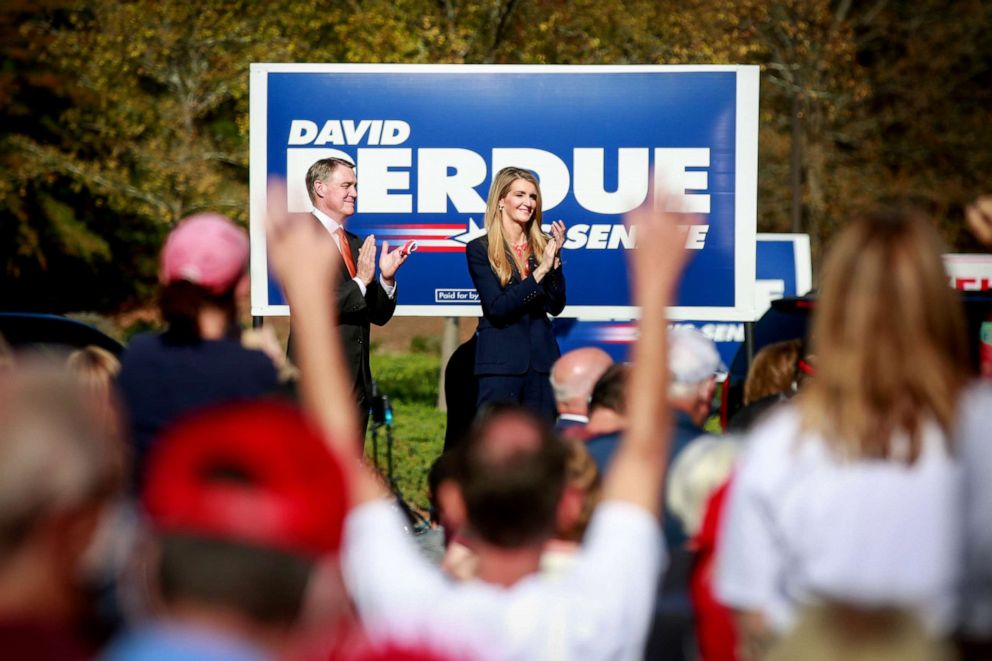Trump's role in Jan. 6 siege looms over business of Washington: The Note
The 1st hearing raised questions that directly involve the Trump administration
The TAKE with Rick Klein
The first of what will be many congressional hearings on the Capitol siege revealed how much is still not known about what happened Jan. 6 -- even after an impeachment trial, evidence unearthed in scores of prosecutions and countless hours of videos of the attack itself.
Perhaps the most obvious blind spot is what former President Donald Trump knew and what he did about it in real-time.

That matters for President Joe Biden and his soon-to-be attorney general, members of Congress trying to fix what was obviously broken last month and the Republican Party as it seeks a post-Trump future that's still being shaped by the ex-president.
Tuesday's hearing raised a series of questions that directly involve the previous administration. Current and former law-enforcement officials aren't sure why FBI intelligence didn't make its way to the leadership of the Capitol Police or why National Guard and Pentagon resources weren't faster to arrive when it became clear how awful the situation was.
The hearing also demonstrated how the incomplete history of Jan. 6 is already being rewritten. Sen. Ron Johnson, R-Wis., read a passage from an opinion piece suggesting the violent turn was due to "provocateurs," saying that only "a very few didn't share the jovial, friendly, earnest demeanor of the great majority" of those who attended the rally.

Judge Merrick Garland plans to make Jan. 6 investigations his first priority after he becomes attorney general. And even with additional hearings Wednesday, Thursday and beyond, the concept of a bipartisan commission to investigate the events leading up to and during the siege is gaining traction on Capitol Hill.
Many of the most consequential questions rest with Trump -- assuming he is put in a position of having to answer them.
The RUNDOWN with Alisa Wiersema
Wednesday could be a make-or-break day in Neera Tanden's confirmation process, as key Senate committees gear up to vote on whether to advance her nomination to lead the Office of Management and Budget to the floor. To date, she's faced the most intense scrutiny of any of Biden's nominees and has already lost the support of one Democrat, yet the White House is sticking with their pick.
"There's one candidate to lead the Budget Department, her name is Neera Tanden," press secretary Jen Psaki said Tuesday, although she did not say whether the president had intervened on Tanden's behalf in his talks with senators.
In a less direct way, Biden indicated his confidence, too. "We're going to push. We still think there's a shot, a good shot," he said.

But the opportunity to see through Tanden's nomination became more difficult in the last few days after Sens. Susan Collins, Mitt Romney and Joe Manchin voiced their opposition. Tanden's path now largely relies on the centrist voting tendencies of Sens. Lisa Murkowski and Kyrsten Sinema.
Regardless of how the two senators vote, their moves are likely to add another element to the discussion of political sexism stemming from the criticism Tanden faced throughout the confirmation process for her past tweets. Online, the hashtag #YesNeera took off among Democratic supporters who suggested Tanden is facing a double standard as a woman of color. Some are perceiving hypocrisy from Collins and Manchin, both of whom voted in favor of confirming Richard Grenell as Germany's ambassador, despite his intensely partisan Twitter activity.
The White House has not directly waded into that discussion. Asked whether the Biden administration sees "a double standard at play," Psaki told reporters the president believes senators on both sides of the aisle will consider his nominees "with the best of intention."
The TIP with Quinn Scanlan
David Perdue's decision to forgo a 2022 comeback bid came with a promise that echoed the present political will among Georgia Republicans after their recent, bruising statewide losses. He said he'd do whatever he can to help "correct the inequities in our state laws and election rules."
The Peach State has become ground zero among state legislatures for bills that would change voting and elections processes, with more than a dozen introduced in the General Assembly. Republicans are at the forefront of this effort, citing the need to restore trust in elections. But Democrats see it differently, accusing the GOP of trying to restrict voter access and suppress historically disenfranchised communities, like voters of color, under the guise of election security.
Perdue's pledge came a day after his former de facto running mate, Kelly Loeffler, announced her new organization that will, among other priorities, advocate for the type of election reforms Republican state lawmakers are currently pursuing.

Many are billing the organization, Greater Georgia, as a GOP counter to Fair Fight, the voting rights group founded by Democrat Stacey Abrams after her 2018 electoral loss to Gov. Brian Kemp. And Fair Fight -- staunchly against the proposals Loeffler's group would push for -- launched a multimillion-dollar ad campaign Tuesday that it said highlights "how Georgia Republicans' unconstitutional attacks on vote by mail negatively impact Republican voters who rely on mail-in ballots."
The 2022 campaigns have barely begun, but with Senate, secretary of state and gubernatorial elections on the ballot in Georgia next cycle, the focus on voting -- much of it coming from potential candidates for those races -- is unlikely to subside.
THE PLAYLIST
ABC News' "Start Here" podcast. Wednesday morning's episode features ABC News Senior Washington reporter Devin Dwyer, who tells us what happened during the first public hearing into Capitol Hill security failures around the Jan. 6 attack. ESPN's Ramona Shelburne tells us what we know so far about Tiger Woods' severe car crash in Los Angeles. And ABC News' Jordana Miller joins us from Jerusalem, where health officials are getting a glimpse at what post-vaccine life could look for the rest of the world. http://apple.co/2HPocUL
ABC News' "Powerhouse Politics" podcast. Sen. Dick Durbin, D-Ill., joins ABC News Political Director Rick Klein and Chief Washington Correspondent Jonathan Karl on the podcast. https://bit.ly/3dqyKZ3
WHAT YOU NEED TO KNOW TODAY
Download the ABC News app and select "The Note" as an item of interest to receive the day's sharpest political analysis.
The Note is a daily ABC News feature that highlights the key political moments of the day ahead. Please check back tomorrow for the latest.




